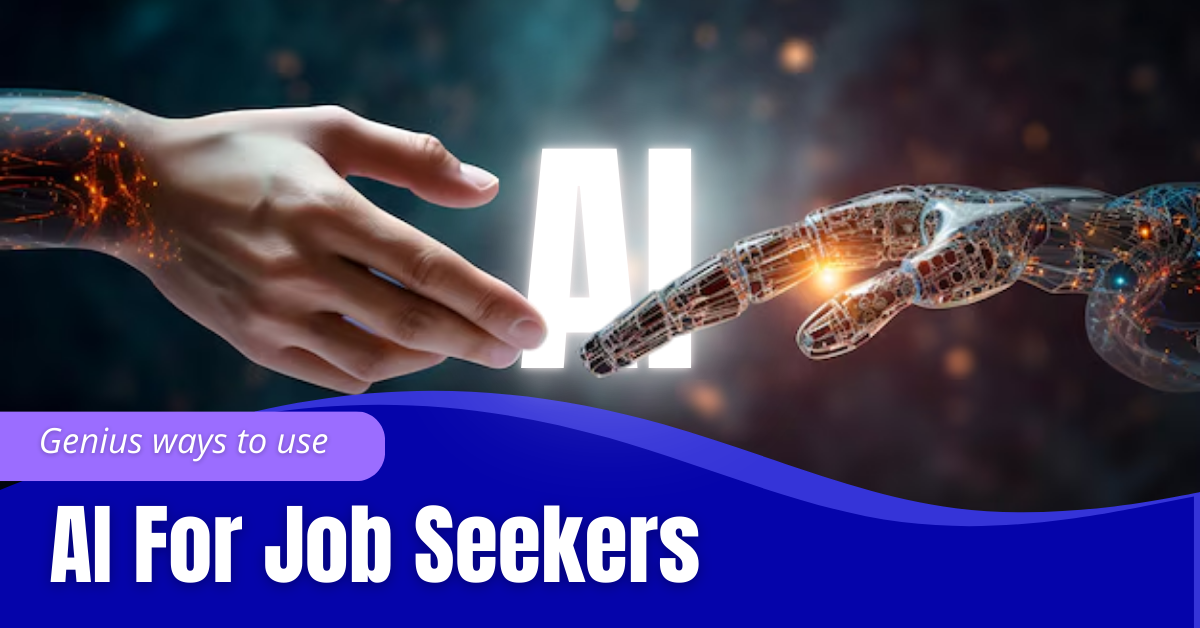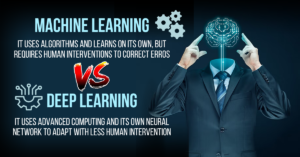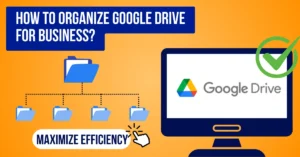AI in the job search process? Sounds weird.
According to a IMF (International Monetary Fund) report, 40% of jobs around the world will be affected by AI. However, the WEF also projected it will create 97 million new roles in areas like AI development, data science, and human-AI collaboration.
AI can take take your job, but it can also help you find one. Today’s insights come from Christoph Rosenboom, CEO of Kienerich GmbH. Christoph specializes in guiding businesses on practical AI applications and using data for smarter decisions. We’re excited to share his expertise and show how AI can transform job searching!
AI is changing the job search process in ways that can help you save time, understand job requirements better, and even prepare for interviews.
Based on research from the MIT paper, “The Impact of Generative AI on Labor Market Matching,” we’ll walk you through practical steps that can help you stand out, from crafting resumes to finding roles that fit you best. Here’s how AI can guide your search and bring new opportunities to light.
Key Takeaways – AI for Job Seekers
- Smarter Applications: AI tools help create professional resumes and cover letters with less effort.
- Matching Job Opportunities: AI tools connect you with roles that suit your unique skills.
- Improved Interview Preparation: AI helps you practice interviews and build confidence.
- Skill Insight: AI reveals missing skills and provides resources for self-improvement.
- 24/7 Job Alerts: AI tools monitor listings and notify you of new roles.
Table of Contents
1) Use AI to Make Your Job Applications That Stand Out
Personalized Resumes and Cover Letters
Creating resumes and cover letters that align with specific jobs can be challenging. AI tools can help by analyzing job descriptions and suggesting key terms, phrases, and formats that make an application shine. For example, tools like ChatGPT can highlight the best keywords to use in your field. These keywords can capture a recruiter’s attention and show you’re prepared for the role.
AI in the job search process brings efficiency by allowing you to craft polished applications without extra time. By using AI-generated suggestions, you can make each resume and cover letter look professional and tailored, even if writing isn’t your strength.
If you are using ChatGPT for your essays, make sure it is not marked as AI content. Check out if Turnitin can Detect ChatGPT in 2024.
Fast and Easy Customization of Applications
Each job is different, so tailoring your application is essential. AI tools allow you to adjust your resume and cover letter for specific jobs instantly. For example, you can enter a job description into ChatGPT and get a list of suggestions for updating your resume. This makes it easier to customize each application to reflect the skills the role requires.
Customizing your applications also shows the recruiter that you’re genuinely interested in the role. And since AI can speed up this process, you can apply to more positions without compromising quality.

2) Find Jobs That Truly Match Your Skills
Getting Job Matches Based on Your Experience
One of the most time-consuming parts of a job search is finding the right opportunities. AI-powered job search platforms can help. By comparing your skills and experience with available jobs, these tools filter out positions that don’t match, allowing you to focus only on roles that suit you.
These tools can be especially helpful if you’re unsure about which roles to target. For instance, if you’re shifting careers or returning to work after a break, AI can recommend jobs based on the skills you currently have. Using AI in the job search process for matching means you can apply with confidence, knowing the roles align with what you bring to the table.
Tailored Job Alerts to Keep You Updated
AI can send you job alerts whenever there’s a new opportunity that fits your profile. For example, if you’re looking for roles in a specific industry, AI tools can track relevant listings and notify you immediately. This way, you don’t miss out on openings and can apply before others even find out.
Tailored alerts are also great for long-term planning. You can set preferences and let AI track jobs for you, even when you’re busy with other commitments. AI in the job search process lets you take advantage of time-sensitive opportunities without needing to spend hours manually checking listings.
3) AI Helps Spot Job Requirements and Skill Gaps
Identify Skills You Might Be Missing
Job descriptions can sometimes list skills you might not have yet. AI tools can analyze these listings and point out specific skills that could be worth learning. This gives you a clear view of what employers are looking for, helping you prioritize skill-building and what you need to improve. This way you don’t have to read all job applications, you just need to ask AI to make a summary of the job skills.
Imagine you’re applying to marketing roles, but the descriptions mention SEO, a skill you haven’t studied yet. AI can suggest online courses to help you learn SEO, increasing your chances of landing the role. AI in the job search process helps you keep pace with what’s in demand and be ready for roles you’re interested in.
Insights into Industry Trends
AI not only analyzes job postings but can also track larger industry trends. Understanding these trends can help you make informed decisions about your career. For example, if you’re in tech and AI detects a growing demand for data science, it can suggest ways to gain the skills that will keep you competitive.
Industry insights also help you plan your next steps. Knowing what skills are in high demand gives you a head start in training for future roles.

4) Prepare for Interviews with AI to Impress The Recruter
Role Play Interviews and Get Feedback
Preparing for interviews can be very stressful, but AI can help calm your nerves.
AI tools like ChatGPT offer mock interview sessions, allowing you to practice answering questions in a realistic way. You can get immediate feedback, which can help you refine your responses and gain confidence.
AI also helps you with behavioral questions using techniques like the STAR method (Situation, Task, Action, Result). Practicing with this format helps you communicate your experiences effectively, showing the interviewer that you’re prepared and professional.
Simulate Job Tasks to Build Familiarity
AI can simulate job role tasks, allowing you to try out responsibilities before you interview. By practicing tasks that relate to specific jobs, you gain a clear idea of what each role involves, making you more prepared when speaking with a hiring manager.
This practical insight builds confidence and helps you assess your readiness for the role. Going into an interview with a sense of what the job entails shows you’re proactive and genuinely interested in the position.
5) Negotiate Your Salary with Confidence and Get a Better Deal
Practice Salary Negotiation
After receiving a job offer, discussing salary can feel challenging. Feels weird to talk about money, nevertheless ask for it. No need to worry.
AI can help you practice scenarios for salary negotiations, making you feel more confident in these discussions. AI guides you through negotiation strategies, helping you understand when to accept, counter, or make additional requests.
This practice helps you avoid common pitfalls and prepares you to get a fair compensation. Practicing with AI also gives you a chance to test out responses and get comfortable discussing your expectations.
Benchmark Similar Industry Salaries
AI tools can help you understand salary standards in your field by analyzing data from similar roles and locations. This information gives you a clear sense of your market value, helping you make informed decisions during negotiations.
Having concrete data about typical salaries for roles similar to yours allows you to negotiate more effectively. It also shows the employer that you’ve done your research, which can strengthen your position.

6) Monitor Better Jobs and Apply Automatically
AI-Powered Application Submission
AI tools don’t just help with job searching—they can even apply for roles on your behalf. By automating applications, AI keeps you visible to potential employers even if you’re not actively searching at the moment.
Imagine getting interviews for roles because AI applied for you at just the right time. This automated process keeps you competitive without requiring constant manual effort. AI in the job search process helps you stay on the radar for job opportunities that might otherwise be missed.
Constantly Tracking the Job Market
The job market is always shifting, with new skills becoming valuable and certain industries growing rapidly. AI tools monitor these changes, keeping you updated on where to focus your efforts. AI in the job search process keeps track of relevant trends and updates, helping you stay competitive.
With this feature, you’ll be aware of the latest in-demand skills, giving you the insight you need to adapt your career strategy.
7) Use AI to Network and Connect With Potential Employers
Building Professional Connections
Networking is a key part of any job search, and AI can help you find people who align with your career goals. Tools that analyze LinkedIn profiles and suggest connections can make networking feel more manageable. You can identify individuals who work in your field or share similar interests, and AI provides personalized messages that make it easier to connect.
Building connections with the right people can open up job leads and new opportunities. By using AI in the job search process, you expand your network without having to cold message strangers.
Suggestions for Industry Events and Groups
AI tools also recommend industry groups and events that match your profile. Attending these events gives you the chance to meet people who share your goals and connect with potential employers. By joining professional groups, you stay updated and connected within your industry.
These AI suggestions help you make the most of your networking time, building valuable relationships that can help your career.

8. How AI Helps Employers (and You) with Screening
Many companies use AI in the hiring process to screen applications based on specific criteria. Understanding how these tools work can help you make sure your resume aligns with what companies are looking for. For instance, using the same keywords from job descriptions can increase the chances that your resume passes initial screenings.
Knowing how these AI systems work gives you an advantage, allowing you to fine-tune your applications so that they are more likely to stand out.
9) Some Points to Consider When Using AI in Your Job Search
Finding the Right Balance with AI
AI can improve your job search in countless ways, but it’s also important to keep a balance. Relying only on AI may make applications look too similar. Adding a personal touch can make your applications unique and keep you focused on roles that truly fit.
The key is to use AI as a tool while making sure your personality and experience shine through.
Protecting Your Personal Data
When using AI, consider privacy policies and data handling practices to ensure your personal information is safe. Each platform has its own rules for storing and sharing information, so it’s wise to review these before using any tool extensively.
Keeping your data secure while using AI in the job search process helps you make the most of these tools safely and responsibly.
Conclusion
AI has become a valuable resource for job seekers, offering tools and insights that can help you navigate every stage of the search process. From creating applications and finding the best job matches to preparing for interviews and negotiating salaries, AI in the job search process can make things easier and help you find roles that truly fit you.
Christoph Rosenboom and Kienerich GmbH have seen how effective AI can be for job seekers of all levels. Embracing AI tools allows you to feel prepared, informed, and confident in your search. Whether you’re new to the workforce or changing careers, these tools provide support that can make a big difference.
If you are looking for AI solution, you might consider checking them out.
Bonus Tip
If you interested to use AI in your work or business, you must subscribe to my newsletter! No fluff, just useful stuff.
Each week, you’ll get practical insights on how AI can drive real results for your business – by working smarter, not harder. Sign up and start making AI work for you!
FAQs
What is AI in the job search process?
AI in job searching includes tools that help you find roles that fit your skills, prepare for interviews, and even apply to jobs on your behalf.
How does AI match jobs to candidates?
AI scans job descriptions and compares them to your resume, suggesting roles that align well with your skills and experience.
Can AI improve my resume?
Yes, AI tools can provide feedback on wording, keywords, and format to make your resume more appealing to recruiters.
Is AI reliable for interview preparation?
AI tools simulate interview questions and offer feedback, helping you practice and feel more prepared for real interviews.
How does AI help identify missing skills?
AI analyzes job descriptions and highlights skills you may not have, suggesting resources to help you develop them.
Is it safe to use AI tools for job searching?
Yes, but it’s best to review privacy policies to understand how your data is stored and used.





